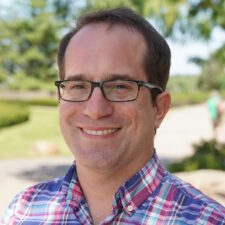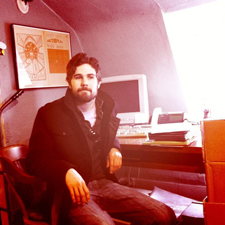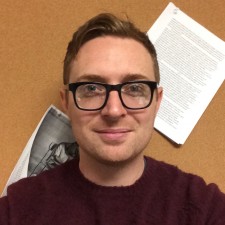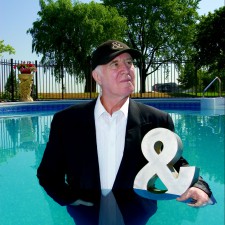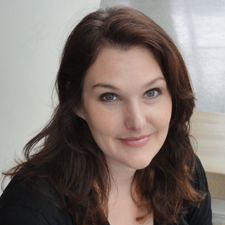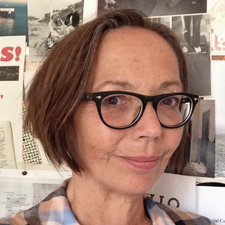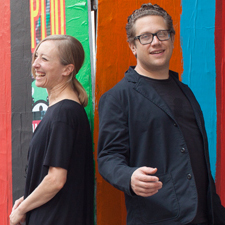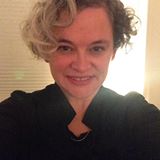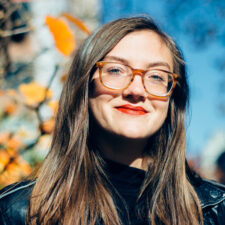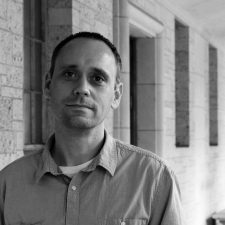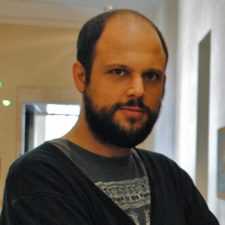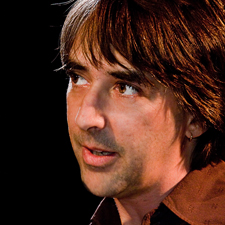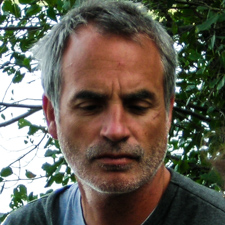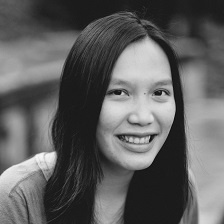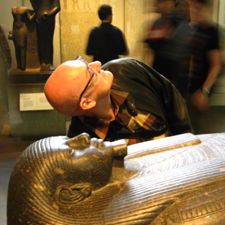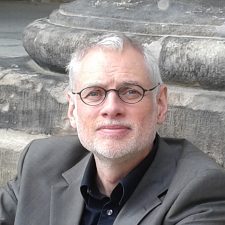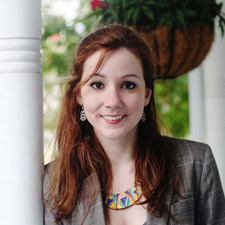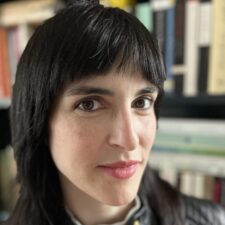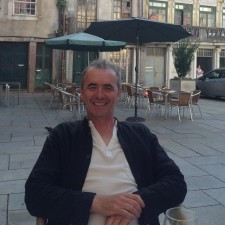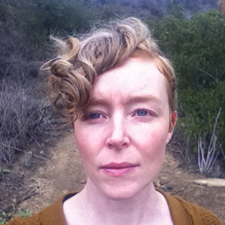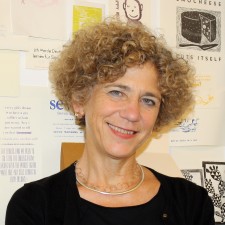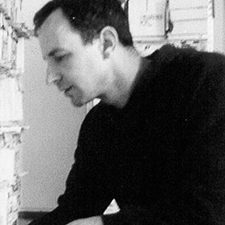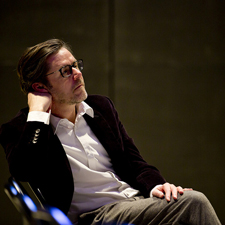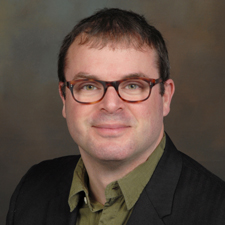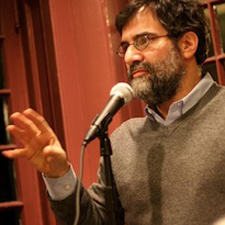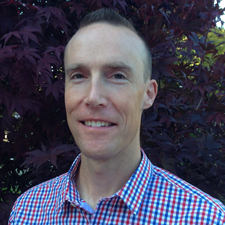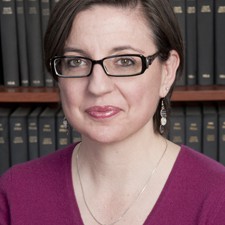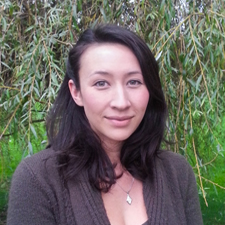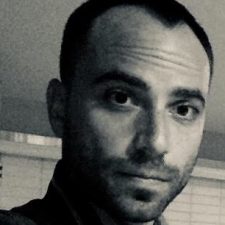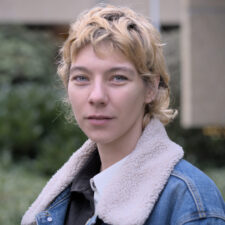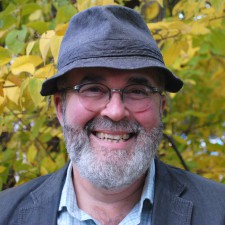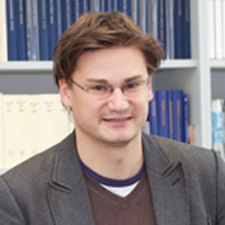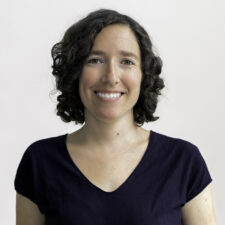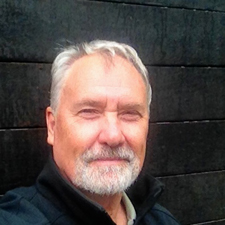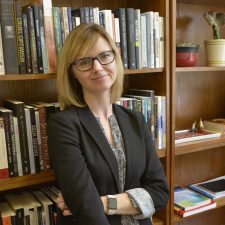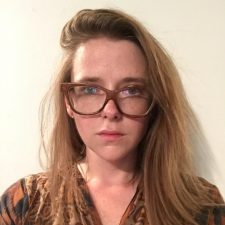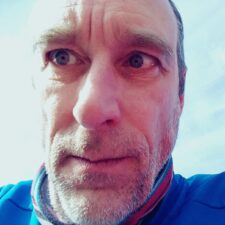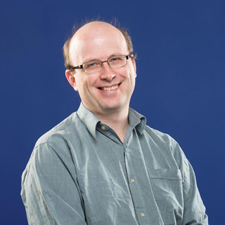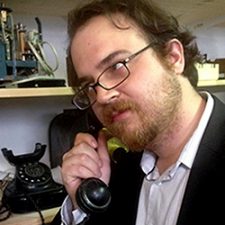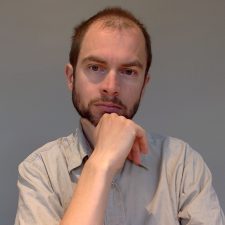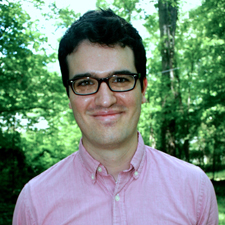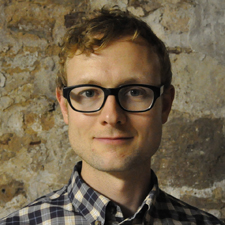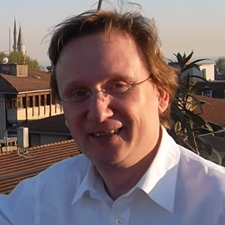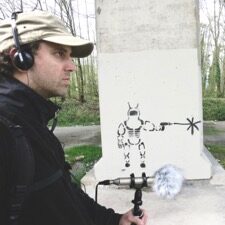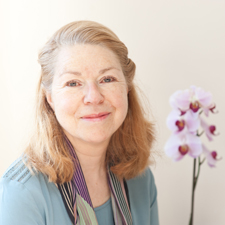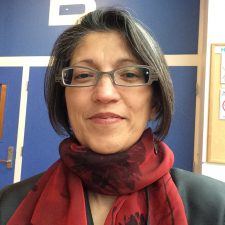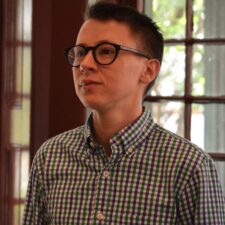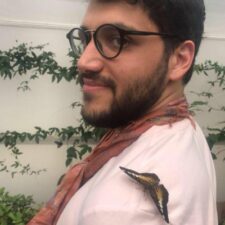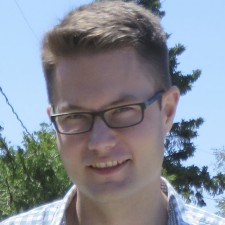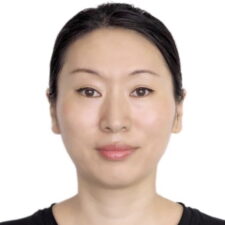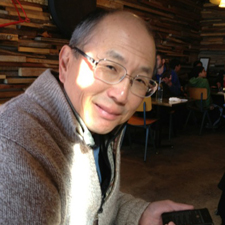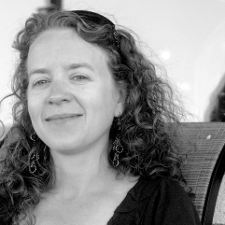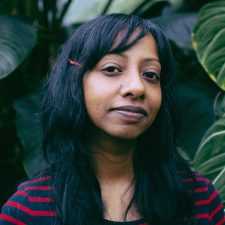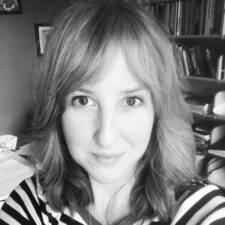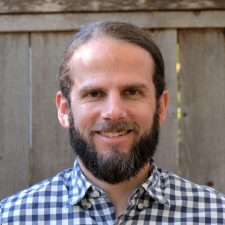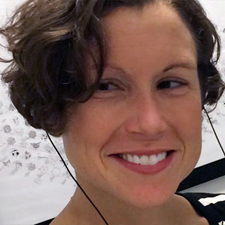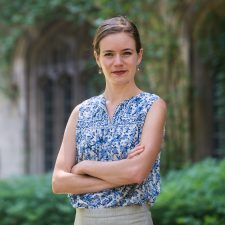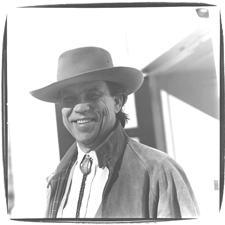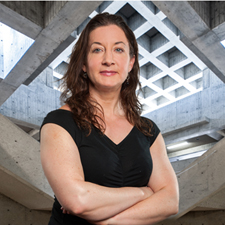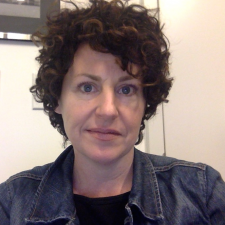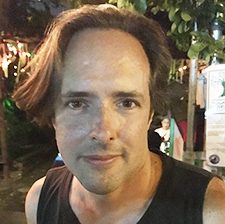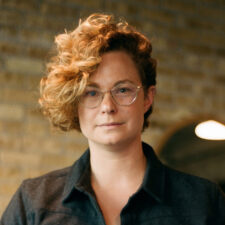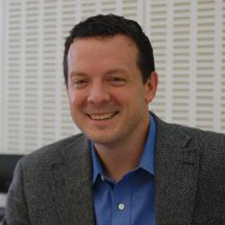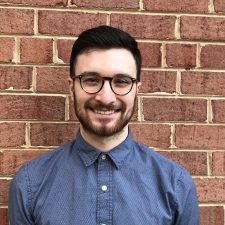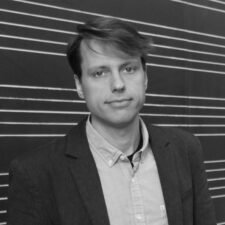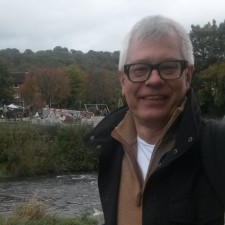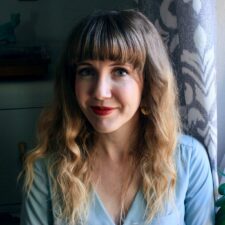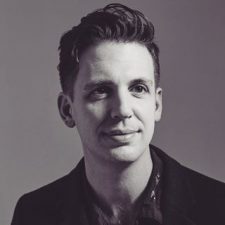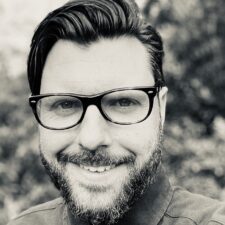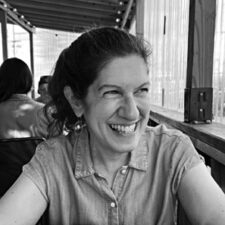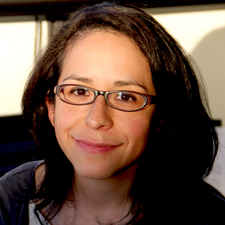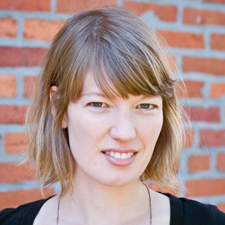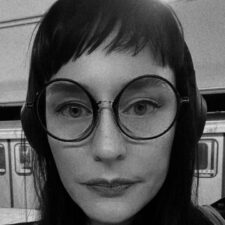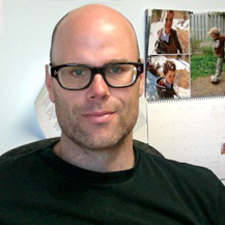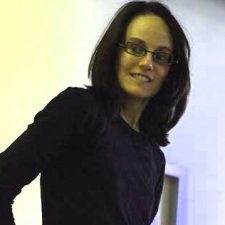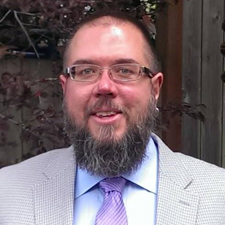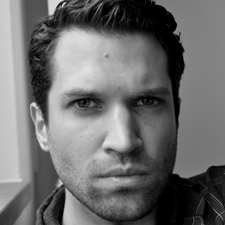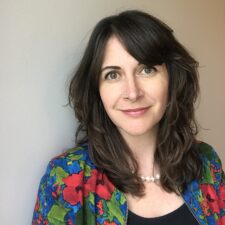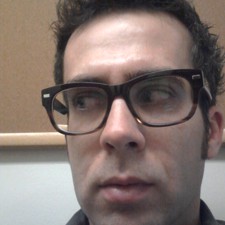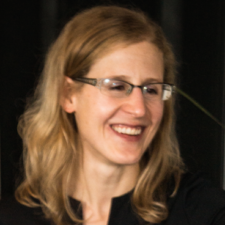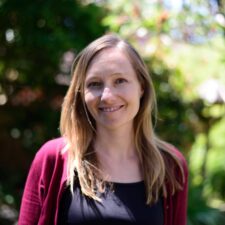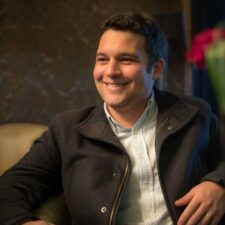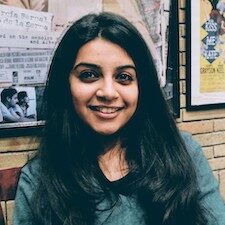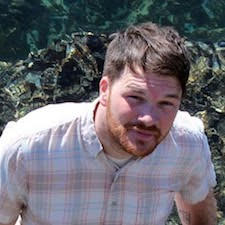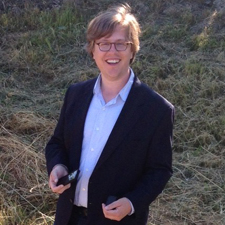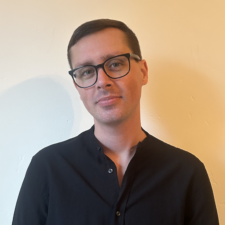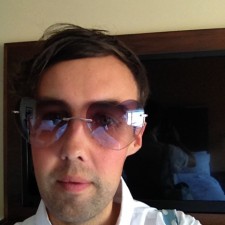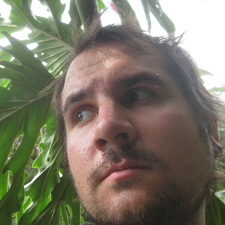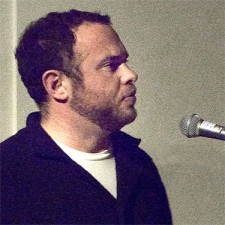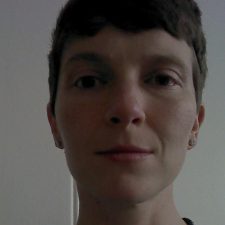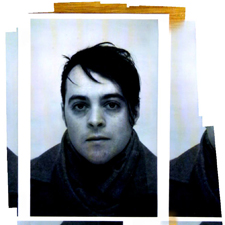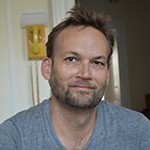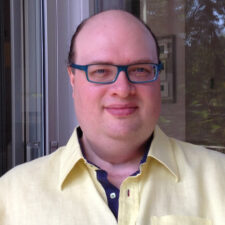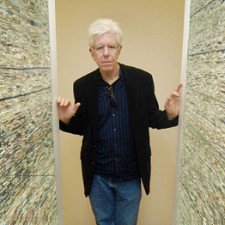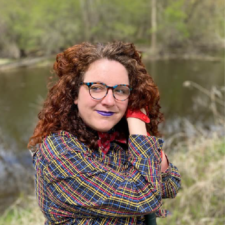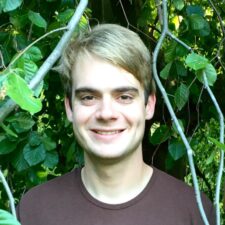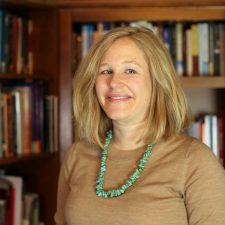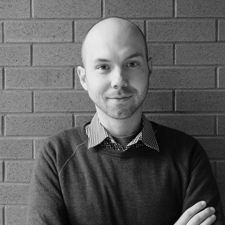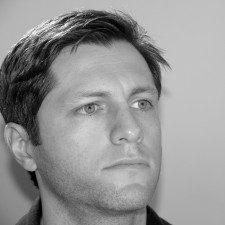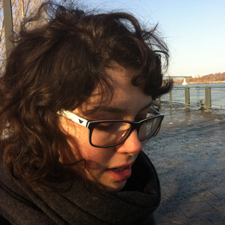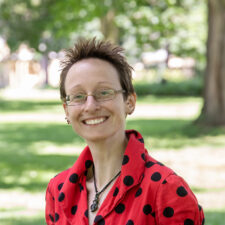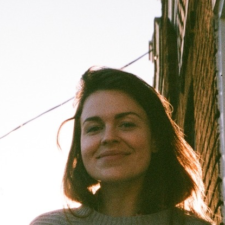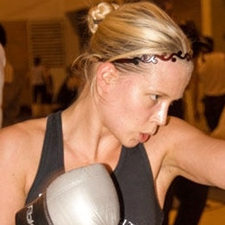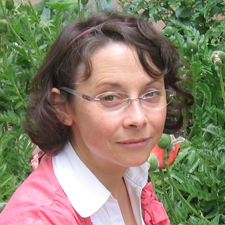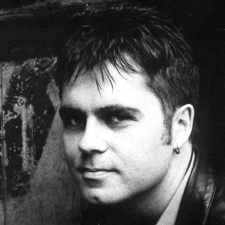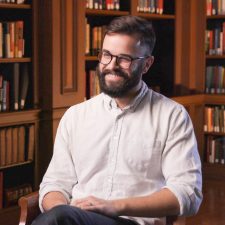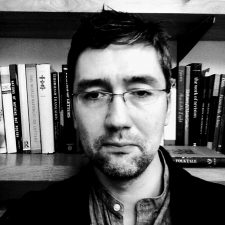Andrew Amstutz is an Assistant Professor of History at Queens College, City University of New York (CUNY.) He received his PhD from Cornell University. He has published articles in Comparative Studies of South Asia, Africa and the Middle East, Philological Encounters, and South Asia. His research has been supported by the Institute for Advanced Study, Fulbright-Hays, and AIPS. Prior to joining Queens College, he was a Mellon Postdoctoral Fellow at the University of Wisconsin–Madison and taught at the University of Arkansas at Little Rock.
Cameron Anstee is a SSHRC-funded Doctoral Candidate in the Department of English at the University of Ottawa. His dissertation studies the work of booksellers in Canada after the Second World War in relation to the small press. He recently co-edited (with Robert David Stacey) a special issue of Canadian Poetry: Studies, Documents, Reviews on Irving Layton, and is the editor of the forthcoming The Collected Poems of William Hawkins (Chaudiere Books, 2015). He runs Apt. 9 Press (Ottawa).
Matt Applegate is an Assistant Professor of English & Digital Humanities at Molloy College. You can find his work in Theory & Event, Cultural Critique, Telos, and more. Find more information at http://mapplega.com.
Iain Baxter&, the &MAN, has been described as the visual Marshall McLuhan of our times. He is Canada’s premier conceptual artist & is an Officer of the Order of Canada, the Order of Ontario, & the Order of BC. He is a winner of the Molson and Iskowitz prizes & the Governors Generals Award in Visual & Media Arts – all for lifetime achievement. He is a Fellow of the Royal Society of Canada, received five honorary doctorates & is University Professor Emeritus at the University of Windsor.
Jonas-Sébastien Beaudry is an assistant professor at McGill University and a member of the Bar of Quebec. He has published on human rights, bioethics, and disability studies.
Brooke Belisle is an ACLS New Faculty Fellow and Visiting Assistant Professor at Stony Brook University in the department of Cultural Analysis and Theory. She researches and teaches the history and theory of digital media, cinema, and photography, with a special focus on emergent technologies, experimental formats, and expanded views.
Gregory Betts is the Chancellor’s Chair for Research Excellence, the Director of Canadian Studies, and the Graduate Program Director for Canadian and American Studies at Brock University. He is the author of Avant-Garde Canadian Literature (UTP 2013), curator of the bpNichol.ca digital archives, and editor of six books of experimental Canadian writing. His most recent book is Boycott (Make Now Press, 2014). He lives in St. Catharines, Ontario.
Matthias Bickenbach studied German Literature, Philosophy and Art History at the University of Cologne. His Ph.D. thesis develops a history of reading with a focus on reading techniques (Von den Möglichkeiten einer 'inneren' Geschichte des Lesens, Tübingen 1999). As a postdoc he worked at the Centre of Advanced Studies "Media and Cultural Communication" in Cologne. After his professorial dissertation (Habilitation 2005) on the photographic impact on the representation of literary authors, he has been reading German Literature at the Universities of Tübingen, Bonn and Cologne. His key research areas include the poetics of novels from the 18th to the 21st century, media history and cultural techniques.
Jane Birkin is an artist and a postdoctoral researcher at Winchester School of Art, University of Southampton. Taking the archive as the primary locus of her practice, Birkin unfolds the term “archive”, not as a discussion of nostalgia and decay, but by approaching images through information management, through descriptions and lists. Working at the intersection of text and image, she combines media culture and techniques of the archive, as well as contemporary discourse on art, photography and conceptual writing.
Julia Bloch’s current book project argues that innovative North American long poems use lyric as a site at which to experiment with race, gender, and forms of the self. She is the author of three books of poetry; her essays on poetry and poetics have appeared or are forthcoming in Journal of Modern Literature, Tulsa Studies in Women’s Literature, the MLA volume Teaching Modernist Women’s Writing in English, and elsewhere. She directs the Creative Writing Program at the University of Pennsylvania.
Daniel Borins and Jennifer Marman have been making large-format sculpture, mixed media, installation and electronic art since 2000. Marman is a graduate of the University of Western Ontario. Borins is a graduate of McGill University. They both graduated from the Ontario College of Art and Design in 2001 – where they first began collaborating together. Their solo exhibition “The Collaborationists” has been on tour since 2013. Marman and Borins are represented by Cristin Tierney Gallery in New York.
Margie Borschke is a senior lecturer in media in the School of Art, Communicaton and English at the University of Sydney. She is the author of This is not a remix: piracy, authenticity and popular music (Bloomsbury 2017) and many other articles and chapters on the intersection of culture and technology. Copying, circulation/distribution and collecting as cultural practices are the focus of her research.
Liz Bowen is a disabled poet and scholar. She is currently the Rice Family Postdoctoral Fellow in Bioethics and the Humanities at The Hastings Center, after earning a Ph.D. in English and comparative literature from Columbia University in 2020. She is the author of the poetry collections Sugarblood (Metatron Press, 2017) and Compassion Fountain (Trembling Pillow Press 2021), and her criticism is published or forthcoming in English Literary History, Post45, The New Inquiry, Boston Review, and American Poetry Review.
Casey Boyle is Associate Professor in the Department of Rhetoric and Writing and Director of the Digital Writing and Research Lab at the University of Texas-Austin. He researches and teaches on rhetoric, media theory and practice, and critical theory. His book is Rhetoric as a Posthuman Practice.
Rosi Braidotti is Distinguished University Professor and founding Director of the Centre for the Humanities at Utrecht University. Her latest books are: Conflicting Humanities (ed. with Paul Gilroy, Bloomsbury, 2016); The PosthumanNomadic Subjects (Columbia University Press, 2011a) and Nomadic Theory. The Portable Rosi Braidotti (Columbia University Press, 2011b). Author photo by Sjaak Ramakers.
Kate Briggs is a writer and translator based in Rotterdam, The Netherlands. She is the translator of two volumes of Roland Barthes’s lecture notes at the Collège de France (both published by Columbia University Press), the author of Exercise in Pathetic Criticism and co-editor of The Nabokov Paper: An Experiment in Novel-Reading (both published by information as material). The Little Art, her book-length essay on the practice of translation will be published by Fitzcarraldo Editions in 2017.
Sarah Brouillette is an Associate Professor in the Department of English at Carleton University, where she teaches contemporary British, Irish, and postcolonial literatures alongside Marxist social and cultural theory.
James J. Brown, Jr. is Associate Professor of English and Director of the Digital Studies Center (DiSC) at Rutgers University-Camden. His research addresses the ethical and rhetorical dimensions of digital spaces, and his book, Ethical Programs, addresses the ethics of hospitality that grounds our interactions with and in networked environments. His current project, “Hateware," addresses how the design of computational systems contributes to the problem of abuse and harassment.
Jason Camlot’s critical works include Style and the Nineteenth-Century British Critic and Language Acts: Anglo-Québec Poetry, 1976 to the 21st Century. He is also the author of four collections of poetry, Attention All Typewriters, The Animal Library, The Debaucher, and most recently, What the World Said. Camlot is Associate Professor of English and Associate Dean in the Faculty of Arts and Science at Concordia University in Montreal.
John Cayley makes digital language art, particularly in the domain of poetry and poetics. Recent and ongoing projects include How It Is in Common Tongues, a part of the The Readers Project with Daniel C. Howe (thereadersproject.org), imposition with Giles Perring, riverIsland, and what we will. Cayley is Professor of Literary Arts at Brown University.
Tiffany Chan recently received her MA in English Literature (2017) from the University of Victoria. She has worked as a graduate research assistant at both the MLab and the Digital Scholarship Commons Makerspace (at UVic Libraries). Currently, she is still based in Victoria.
cris cheek: is a transdisciplinary poet and performance writer, currently Director of Creative Writing at Miami University in south-west Ohio where he was the Altman Fellow in the Humanities Center 2011-12, co-initiating and co-organizing the Network Archaeology conference with Nicole Starosielski. He’s affiliated both to the Armstrong Interactive Media Studies and Comparative Media Studies programs at Miami. His most recent books are the church, the school, the beer (Critical Documents, 2007) and part : short life housing (The Gig, 2009).
Heiko Christians is professor in media studies and cultural history at University of Potsdam. His upcoming book is Wilhelm Meisters Erbe. Deutsche Bildungsidee und globale Digitalisierung. Eine Inventur (Böhlau Verlag, 2020).
Ashley Clarkson is completing an MA degree in Oral History at Concordia University and will pursue a PhD in Public History at Carleton University in 2015. Ashley holds a certificate in Museum Studies from the Commonwealth Museums Association and is an affiliate of the Centre for Oral History and Digital Storytelling at Concordia. Her Master’s research focuses on memory and immigration at Pier 21 in Halifax. Her doctoral research will focus on digital technologies at the Canadian War Museum.
Keegan Cook Finberg is an Assistant Professor of English at University of Maryland, Baltimore County. Her research and teaching focus on poetry and politics, experimental writing, and feminist and critical theory. Her recent scholarship appears in Review of International American Studies, Contemporary Women’s Writing, and Textual Practice and her public criticism and reviews can be found in Los Angeles Review of Books, Jacket2, The Rumpus and elsewhere. She is also the author of the poetry chapbook The Thought of Preservation (Ursus Americanus Press, 2019).
Sadie Couture is a digital media artist, producer, and scholar. She is a PhD student in Communication Studies at McGill University, pursuing work at the intersection of radio studies, media history, and sound studies. Sadie holds an MA in Media Studies from Concordia University and a BA in Philosophy from the University of British Columbia.
Michael Cronin holds a Personal Chair in the School of Applied Language and Intercultural Studies, Dublin City University. He is the author of Translation and Globalization (2003), Translation and Identity (2006), Translation goes to the Movies (2009), The Expanding world: Towards a Politics of Microspection (2012) and Translation in the Digital Age (2013). His Eco-Translation: Translation and Ecology in the Age of the Anthropocene will be published in 2016 by Routledge.
Heather Davis holds a PhD in Communication Studies from Concordia University. She is currently a postdoctoral fellow at the Institute for the Arts and Humanities at Pennsylvania State University, where she is working on a project that figures plastic as the materialization of the subject/object divide. She is the editor of Art in the Anthropocene: Encounters Among Aesthetics, Politics, Environment and Epistemology (Open Humanities Press, 2015). Her writings can be found at heathermdavis.com.
Sarah Dowling is the author of Translingual Poetics: Writing Personhood under Settler Colonialism, as well as three collections of poetry and numerous scholarly essays. Sarah teaches in the Centre for Comparative Literature and Victoria College at the University of Toronto, and serves as the Vice President of the Association for the Study of the Arts of the Present. Currently, Sarah is at work on a book about lying down in contemporary literature, which is forthcoming from Northwestern University Press.
Johanna Drucker is the inaugural Martin and Bernard Breslauer Professor of Bibliographical Studies in the Department of Information Studies at UCLA. She has published and lectured widely on topics related to digital humanities and aesthetics, visual forms of knowledge production, book history and future designs, graphic design, historiography of the alphabet and writing, and contemporary art. Her most recent publication, Graphesis: Visual Forms of Knowledge Production, was published in the MetaLab series in 2014 (Harvard University Press).
Quinn DuPont studies human and social dimensions of cybersecurity, cryptography, and code. He is a Research Associate at the Information School, University of Washington. He has a PhD in Information Science (Toronto), and is an ALA-accredited librarian (Western) with a decade of IT industry experience, previously at IBM. His forthcoming book, Cryptocurrencies and Blockchains (Polity), is a scholarly survey of cryptocurrencies and blockchain technologies in society.
R. Bruce Elder’s films have been presented in solo screenings at New York’s Museum of Modern Art, Berlin’s Kino Arsenal, and Paris’ Centre Pompidou and in retrospectives by Anthology Film Archives, the Art Gallery of Ontario, and the Cinémathèque québécoise. His book, Harmony & Dissent: Film and Avant-Garde Art in the Early Twentieth Century was awarded the prestigious Robert Motherwell Book Prize, named a Choice Outstanding Academic Book, and shortlisted for the Raymond Klibansky Award (now Canada Humanities Prize). His most recent book is DADA, Surrealism, and the Cinematic Effect(2013). He is currently completing a volume on the cinema’s impact on Futurism.
Wolfgang Ernst is Full Professor of Media Theories at Humboldt University in Berlin. His research focus covers media archaeology, technologies of cultural transmission, micro-temporal media aesthetics, and sound analysis from a media-epistemological point of view. His recent books in English are Digital Memory and the Archive, edited and with an introduction by Jussi Parikka (University of Minnesota Press, 2013) and Sonic Time Machines: Explicit Sound, Sirenic Voices and Implicit Sonicity in Terms of Media Knowledge (Amsterdam University Press, forthcoming).
Steve Evans teaches poetry and poetics at the University of Maine, where he also co-directs the National Poetry Foundation and coordinates the New Writing Series.
Russell Field is an Assistant Professor in the Faculty of Kinesiology and Recreation Management at the University of Manitoba. He researches and teaches in the areas of sport history and sport and film, and is also the founder of the Canadian Sport Film Festival (sportfilmfestival.ca).
Al Filreis is Kelly Professor of English, Faculty Director of the Kelly Writers House, Director of the Center for Programs in Contemporary Writing, Co-Director of PennSound, Publisher of Jacket2 magazine. He is author of books on modernism, on poetry during the cold war, and the literary politics of the 1930s – among them, Modernism from Right to Left and Counter-Revolution of the Word: The Conservative Attack on Modern Poetry, 1945–60.
Jonathan Finn is Chair of the Department of Communication Studies at Wilfrid Laurier University. He is the author of Capturing the Criminal Image: From Mug Shot to Surveillance Society (Minnesota 2009) and Visual Communication and Culture: Images in Action (Oxford 2012) as well as numerous essays on photography, surveillance, and visual communication. His current work addresses the use of the photograph as a juridical tool in sport.
Kathleen Fitzpatrick is Director of Scholarly Communication of the Modern Language Association, and Professor of Media Studies (on leave), Pomona College. She is author of Planned Obsolescence: Publishing, Technology, and the Future of the Academy, published in 2011 by NYU Press and previously made available for open peer review online), and of The Anxiety of Obsolescence: The American Novel in the Age of Television, published in 2006 by Vanderbilt University Press. She is co-founder of the digital scholarly network MediaCommons.
Deanna Fong is a doctoral student at Simon Fraser University in Vancouver, Canada, where her research focuses on the intersections of performance, audio archives, literary communities and intellectual property. She is a member of the SpokenWeb team at Concordia University, who have developed a web-based archive of digitized audio recordings for literary study. She is currently developing digital interfaces for the audio/multimedia archives of Canadian poets Fred Wah and Roy Kiyooka.
Michael Fox is a Ph.D. candidate in the Department of English & Comparative Literature at UNC-Chapel Hill, where he is completing his dissertation entitled "The Aesthete's Idea of History." He is also the Assistant Editor and Software Architect of the William Blake Archive. Another article of his about the Archive, "'All Relate to Art': The William Blake Archive and Its Web of Relations," co-written with Joseph Fletcher, will soon appear in Digital Humanities Quarterly.
Julie is a doctoral candidate in English and Cultural, Social, and Political Thought at the University of Victoria. Their research focuses on the material cultures of hormones and is situated at the intersection of critical digital theory and feminist and queer science and technology studies. They are a settler scholar currently located on Coast Salish (lək̓ʷəŋən) territory.
Sandra Gabriele is Associate Professor of Communication Studies at Concordia University. She is co-author of the forthcoming book, The Sunday Paper (University of Illinois Press), which traces the popularization of the weekend edition in North America, 1880s to the 1920s. She is also co-editor of Intersections of Media and Communications: Concepts and Critical Frameworks (Emond Montgomery, 2011). She is currently at work building a newsgame, The Oldest Game, about recent challenges to Canada’s prostitution laws.
Gary Genosko is Professor of Communication and Digital Media Studies at University of Ontario Institute of Technologyin Toronto. He is the author and editor of over 20 volumes, the most recent of which are, as author, When Technocultures Collide: Innovation from Below and the Struggle for Autonomy (Wilfrid Laurier University Press, 2013) and Remodelling Communication: From WWII to the WWW (University of Toronto Press, 2012). His next book, Critical Semiotics: From Information to Affect, is in press with Bloomsbury.
Sebastian Gießmann is a Postdoctoral Fellow in Media Studies at the University of Siegen, Germany. His research interests include network history, material culture, anthropology of law, and Internet studies. He co-edits the Zeitschrift für Kulturwissenschaften and ilinx, the Berlin Journal in Cultural History and Theory. Gießmann serves as spokesperson for the working group on data and networks in the German Society for Media Studies.
Lisa Gitelman teaches English and media studies at New York University. Her new book, Paper Knowledge: Toward a Media History of Documents will be published by Duke University Press in early 2014.
Declan Gould is Assistant Professor of Teaching Instruction in the Intellectual Heritage Program at Temple University. She is the author of the chapbooks “Like” or “As” (dancing girl press, 2017), Model Figure (Shirt Pocket Press, 2015) and the co-editor of (Dis)Integration: Buffalo Poets, Writers, Artists 2017. Her writing appears or is forthcoming in The Cambridge Companion to Twenty-First-Century American Poetry, the Journal of Literary and Cultural Disability Studies, Denver Quarterly, P-Queue, Full Stop, The Conversant, and Jacket2.
Richard Gruneau is Professor of Communication at Simon Fraser University. He has written widely in several fields, including social theory, cultural studies, historical sociology, and the political economy of media and popular culture. His most recent project is an edited book (with John Horne) Mega Events and Globalization: Capital, Cultures and Spectacle in a Changing World Order (Routledge: forthcoming 2015).
Kimberly Hall is an Assistant Professor in the Department of English at Wofford College. Her work on social media has appeared in Television and New Media and Women and Performance. She is currently completing a book on the historical development of observational media projects.
Diana Hamilton is the Associate Director of the Writing Center at Baruch College (CUNY). Her scholarly work focuses on the relationship between style and subjectivity in twentieth century writing. She is also the author of one book of poetry – Okay, Okay (Truck Books) – and four chapbooks, including Universe (Ugly Duckling Presse).
George Hart is Professor of English at California State University Long Beach. He is the author of Inventing the Language to Tell It: Robinson Jeffers and the Biology of Consciousness (Fordham University Press, 2013) and co-editor of Momentous Inconclusions: The Life and Work of Larry Eigner, (University of New Mexico Press, forthcoming). His book Finding the Weight of Things: Larry Eigner's Ecrippooetics is under contract with the University of Alabama Press.
Steven High is Professor and Canada Research Chair in Oral History at Concordia University. He is Co-Director of the Centre for Oral History and Digital Storytelling as is a member of the Spoken Web project. His publications include Oral History at the Crossroads: Sharing Life Stories of Survival and Displacement (UBC Press, 2014.
Matthew Hockenberry is a Lecturer in Digital Technology and Emerging Media at Fordham University. A media historian and theorist whose work examines the media of global production, his current project develops a media history of logistics, exploring critical developments in the epistemology of assembly by tracing how media forms shaped the emergence of logistical production and distribution in the nineteenth and twentieth centuries. He is particularly concerned with transitional moments of mediation in the histories of paperwork, telecommunication, and computation.
Jocelyn Holland received her Ph.D. in German Studies from Johns Hopkins in 2003, taught for 15 years at UC Santa Barbara, and joined Cal Tech in 2018. Her books include German Romanticism and Science: the Procreative Poetics of Goethe, Novalis, and Ritter, Key Texts by Johann Wilhelm Ritter on the Science and Art of Nature, and Instrument of Reason: Technological Constructions of Knowledge around 1800. Current projects include a book on eighteenth-century technology and essays on materialities of joining.
Lindsay Brandon Hunter is Assistant Professor of Theatre at the University at Buffalo. Her scholarly research investigates the confluence of theatricality, authenticity, and mediatization, in sites as varied as intermedial theatre, reality television, and alternate reality gaming. Her current book project, Playing Real: Media, Mimesis, and Mischief, takes on each of those sites to examine how theatricality and mediatization work both to enact and to interrogate notions of authenticity and realness.
Otso Huopaniemi is a Finnish-born, Berlin-based performance-maker, artistic researcher, and university teacher. His performance works and writings deal with the relationship of writing, bodies, and technology. In particular, Huopaniemi is interested in the potential of digital media to create extensions and new spaces for performative writing. Huopaniemi’s work has been presented in New York, Berlin, and Helsinki, among other places. In 2018, Huopaniemi will defend his doctoral thesis Algorithmic Adaptations at the University of Arts Helsinki, Theater Academy.
Alex M. Ingersoll is Assistant Professor of Media Studies and Production at the University of Wisconsin-Stevens Point. His research and creative interests involve technologies of spatial representation, orientation, and navigation. His recent work deals with a media archaeological account of orientation and navigation technologies as a way to analyze their contributions to the social imaginations of space and to map new terrain for digital media culture.
Dean Irvine is an associate professor at Dalhousie University. He is the author of Editing Modernity: Women and Little-Magazine Cultures in Canada, and the editor of The Canadian Modernists Meet, Heresies: The Complete Poems of Anne Wilkinson, Archive for Our Times: Previously Uncollected and Unpublished Poems of Dorothy Livesay, and Editing as Cultural Practice (with Smaro Kambourelli). He directs Editing Modernism in Canada, Agile Humanities Agency, the Canadian Literature Collection, and the Modernist Commons.
Brian R. Jacobson is Lecturer in Film Studies at the University of St Andrews. His writing about film studio architecture and urban visual culture has appeared in History and Technology, Early Popular Visual Culture, and Media Fields Journal. In 2013 he was awarded the SCMS Dissertation Award, and he is currently completing a book about the origins of film studio architecture and the emergence of cinematic space.
Adrian Johns is Allan Grant Maclear Professor at the University of Chicago, where he teaches in the Department of History and the Committee on Conceptual and Historical Studies of Science. Educated at Cambridge, he previously taught at the California Institute of Technology and the University of California, San Diego. He is the author of The Nature of the Book (1998), Piracy (2009), and Death of a Pirate (2010). His research currently centers on the global industry that works to protect information and intellectual property.
Randolph Jordan is a Visiting Assistant Professor of Film Studies at Concordia University in Montreal. His work resides at the intersections of sound ecology, media studies, and critical geography. His co-edited collection, Sound, Media, Ecology, was published last year by Palgrave. He is now preparing the sound design for the Impostor Cities exhibition, Canada’s official entry to the Venice Architecture Biennale (2021).
Ludmilla Jordanova is Professor of History and Visual Culture at Durham University, where she is also a co-director of the Centre for Visual Arts and Culture. She has been a Trustee of the Science Museum Group since 2011, and chairs the Group's Collections and Research Committee. Her most recent book is The Look of the Past: Visual and Material Evidence in Historical Practice (Cambridge University Press, 2012). She is current working on a book about portraiture in Britain since c. 1850.
Priti Joshi is Professor of English with affiliations in Asian Studies, and Gender & Queer Studies at the University of Puget Sound. Recent publications include a paper on advertisements in Victorian Periodicals Review and another on the India exhibit at the Crystal Palace in Museum History Journal. She is completing a book entitled Empire News: The Anglo-Indian Press Writes India on newspapers of the Bengal presidency between 1840 and 1860.
Davy Knittle (he/they) is a Ph.D. candidate in English at the University of Pennsylvania. Davy works at the intersection of the environmental humanities, queer and trans theory, and critical race studies. His work has appeared recently or is forthcoming in WSQ: Women’s Studies Quarterly, GLQ: A Journal of Lesbian and Gay Studies, ISLE: Interdisciplinary Studies in Literature and Environment, and Planning Perspectives. He is a reviews editor for the poetics journal Jacket2, and curates the City Planning Poetics talk and reading series at the Kelly Writers House.
Burç Köstem (he/him) is a PhD candidate in Communication Studies at McGill University. His doctoral research "The Reactionary Complex" investigates the mutual production of reactionary sentiment and neoliberalism across the sites of urban construction, financial speculation and social media platforms in Turkey. His work has appeared in Theory, Culture & Society and Pli: the Warwick Journal of Philosophy.
Bruno Latour is Professor at Sciences Po, Paris. He decided on this unusual way to do research after having carried out several fieldwork studies in the domains of the science and legal techniques. Having directed two international exhibitions – Iconoclash (2002) and Making Things Public at the ZKM in Karlsruhe (2005) – he found he had a taste for collective work and the exploration of new modes of research and presentation in what are called “the humanities.”
Travis Chi Wing Lau is Assistant Professor of English at Kenyon College. His research and teaching focus on eighteenth- and nineteenth-century British literature and culture, health humanities, and disability studies. Alongside his scholarship, Lau frequently writes for venues of public scholarship like Lapham’s Quarterly, Public Books, and The Los Angeles Review of Books. His poetry has appeared in Barren Magazine, Wordgathering, Glass, South Carolina Review, Foglifter, and The New Engagement, as well as in two chapbooks.
Adam Lauder is a PhD candidate in the Department of Art at the University of Toronto. He has contributed articles to journals including Canadian Journal of Communication, Future Anterior, Technoetic Arts, The Journal of Canadian Art History and TOPIA. Lauder has also contributed features to magazines including Border Crossings, C, Canadian Art, Hunter and Cook and Millions. He was guest curator of the museum exhibitions It’s Alive! Bertram Brooker and Vitalism (2009-11) and Imaging Disaster (with Cassandra Getty, 2013).
Haihong Li is an associate professor of Radio and Television Broadcasting at Xiamen University Tan Kah Kee College in China. She received a Ph.D in Comparative Literature from University of Georgia. Her academic research focuses on Chinese visual culture, women’s studies, and video production. She has published a few articles in Chinese journals and American journals and presented papers at international professional conferences.
Karin Littau is Professor in the Department of Literature, Film, and Theatre Studies at the University of Essex, UK. She has published on book and film history, comparative media, translation, and reception studies. Her next book is a history of literature and film for Routledge, others include Theories of Reading: Books, Bodies and Bibliomania and most recently the co-edited volume Cinematicity in Media History.
Alan Liu is Professor in the English Department at the University of California, Santa Barbara. He has published books titled Wordsworth: The Sense of History (1989); The Laws of Cool: Knowledge Work and the Culture of Information (2004); and Local Transcendence: Essays on Postmodern Historicism and the Database (2008). Projects he has directed include the University of California Transliteracies Project on online reading and the RoSE (Research-oriented Social Environment) software project. Liu is co-leader of the 4Humanities advocacy initiative.
Jessica Lewis Luck is Professor of English at California State University San Bernardino and coordinator of the department’s MA program. She has published essays on Larry Eigner, Harryette Mullen, Sylvia Plath, and disability poetry and poetics. She is currently completing a book that explores the “poetics of cognition” in contemporary experimental poetry.
Mita Mahato is a Seattle-based cut paper, collage, and comics artist, whose work explores the transformative capacities of found and handmade papers. Her cut paper comic Sea is forthcoming from Pleiades Press in November 2017. She is an Associate Professor of English at the University of Puget Sound, serves on the board for the arts organization Short Run Seattle, and is a teaching artist with the Henry Art Gallery, Seattle International Film Festival, and a number of community-based programs.
Jane Malcolm is an Associate Professor of English at the Université de Montréal. She has published essays on the work of Laura Riding, Gertrude Stein, Muriel Rukeyser, and Alice Notley, among others, and is co-editor of a critical edition of Laura Riding's 1928 treatise, Contemporaries and Snobs (University of Alabama Press) and most recently of A Description of Acquaintance: the Letters of Laura Riding and Gertrude Stein 1927-1930 (University of New Mexico Press).
Hannes Mandel is a Lecturer in the Department of Germanic Studies at the University of Texas at Austin. His research interests range between German literary, cultural, and media studies, with a focus on the popular, anthropological, and epistemological dimensions of media. He is currently working towards the publication of his PhD thesis titled Readers’ Lore: Media, Literature, and the Making of Folk-Lore.
Jennifer Marman and Daniel Borins have been making large-format sculpture, mixed media, installation and electronic art since 2000. Marman is a graduate of the University of Western Ontario. Borins is a graduate of McGill University. They both graduated from the Ontario College of Art and Design in 2001 – where they first began collaborating together. Their solo exhibition “The Collaborationists” has been on tour since 2013. Marman and Borins are represented by Cristin Tierney Gallery in New York.
Shannon Mattern is Professor at The New School for Social Research. Her writing and teaching focus on media architectures and infrastructures and spatial epistemologies. She has written books about libraries, maps, and the history of urban intelligence, and she contributes a column to Places Journal. You can find her at wordsinspace.net.
Mollie McFee received a PhD in Comparative Literature from the University of Chicago in 2017. Her research examines the role and legacy of vernacular language politics in the Caribbean and in postcolonial theory.
Jerome McGann is the John Stewart Bryan University Professor, University of Virginia. His most recent publications are The Invention Tree, with drawings by Susan Bee (Chax Press, 2012), Poe and the Remapping of Antebellum Print Culture (LSU Press, 2012), which he co-edited with J. Gerald Kennedy, and Are the Humanities Inconsequent? (U. of Chicago Press, 2009). The dialogue here took place while he was finishing his book Memory Now: Philology in a New Key, to be published next year by Harvard UP.
Lianne McTavish is Professor in the Department of Art and Design at the University of Alberta, where she offers courses in early modern visual culture, the history of the body, and critical theory. In addition to numerous articles and book chapters, she has published three monographs, Childbirth and the Display of Authority in Early Modern France (Ashgate 2005), Defining the Modern Museum (University of Toronto Press, 2013), and Feminist Figure Girl: Look Hot While You Fight the Patriarchy (SUNY Press, forthcoming February 2015).
Mara Mills is Associate Professor of Media, Culture, and Communication at New York University, where she co-founded and co-directs the Center for Disability Studies. She is a founding editor of the journal Catalyst: Feminism, Theory, Technoscience. She has co-edited a special issue of Grey Room on “Audio/Visual” as well as an anthology (forthcoming from Oxford University Press) on Testing Hearing: The Making of Modern Aurality. She is currently working, with Jonathan Sterne, on the history of audio time stretching technology. More information can be found at her website: maramills.org
Joe Milutis is a writer, media artist, and Associate Professor of Interdisciplinary Arts and Sciences at the University of Washington-Bothell. His interdisciplinary work includes experimental sound and radio; video works; new media; experimental narrative and poetics; theoretical writings; and various media and literature hybrids. He is the author, most recently, of Failure, A Writer’s Life and Bright Arrogance, a column on experimental translation at Jacket2. His writing has also appeared in Fence, Triple Canopy, Cabinet, Film Comment, Hyperallergic and Ctheory.
Bellamy Mitchell is a poet and PhD candidate at the University of Chicago in the Committee on Social Thought and the Department of English, holding a joint fellowship in the Center for the Study of Race, Politics and Culture and the Center for the Study of Gender and Sexuality. Bellamy researches and writes about literature of the Americas, and is currently examining a poetics of apologies, considering structurally apologetic subject positions and “manic” apologetics alongside more classically understood gestures of contrition and confession.
Christine Mitchell is a writer and researcher based in Toronto. She's working on a manuscript that develops a media theory of translation through examination of language laboratories, machine translation, translation bureaus, and gamified language learning. Most recently, she's held postdoctoral positions in the Department of Media, Culture and Communication at New York University and with SpokenWeb, a digital spoken word archive for literary research, in the English Department at Concordia University.
Nick Montfort is associate professor of digital media at MIT, director of The Trope Tank, and president of the Electronic Literature Organization. Most recently, he organized and wrote 10 PRINT CHR$(205.5+RND(1)); : GOTO 10, a collaboration with nine other authors about a one-line Commodore 64 BASIC program.
Jeffrey Moro is a PhD candidate in English with a certificate in Digital Studies at the University of Maryland. His research is at the crossroads of digital media studies and the environmental humanities. His writing has also appeared in the speculative fiction section of the Los Angeles Review of Books. Prior to joining UMD, he was the Post-Baccalaureate Resident in Digital Humanities for the Five Colleges of Western Massachusetts. His website is jeffreymoro.com.
Landon Morrison received his PhD in Music Theory from McGill University in 2020 and is now a College Fellow at Harvard University. His research focuses on the role of technological mediation in 20th- and 21st-century sonic practices, with a particular interest in electroacoustic techniques, timbre, microtonality, and experimental music.
John Mowitt is Professor in the School of Fine Art, History of Art and Cultural Studies and holds the Leadership Chair in the Critical Humanities at the University of Leeds. His two most recent books have both appeared from the University of California Press: Radio: Essays in Bad Reception (2011) and Sounds: the Ambient Humanities (2015). He is also a senior editor of the academic journal Cultural Critique.
Sarah Nance is a writer and an Assistant Professor in the Department of English at the United States Air Force Academy in Colorado Springs. Her research examines illness, embodiment, and memorialization in twentieth- and twenty-first-century literature, visual art, and culture. Her critical essays have appeared in Literature & Medicine and Arizona Quarterly, and her creative work and reviews have appeared in venues such as The Los Angeles Review of Books, ASAP/J, Iron Horse Literary Review, Belletrist, Faultline, Parentheses, and elsewhere.
Michael Nardone is co-editor of Amodern. A postdoctoral fellow in the department of French Literature at the Université de Montréal, and an affiliated faculty member at the Centre for Expanded Poetics at Concordia University, he is the author of two books of poetry: The Ritualites (2018) and Transaction Record (2014). His writings and editorial works have been published widely, and are collected at http://soundobject.net.
Daniel Paul O’Brien is a lecturer in Film and Digital Media at The University of Essex. His teaching and research consider the relationship between the human body, narrative and a range of media technologies from film and television to progressing forms of interactive engagement, including digital art, theatre and computer gaming. His work explores how we are becoming more entangled with media technologies to produce and co-create story, and how in turn digital story and media technologies are co-creating us.
Jena Osman has written six books of poetry, including Motion Studies, Corporate Relations, and Public Figures. A Very Large Array: Selected Poems was published by DABA Press in October, 2023.
Veronica Paredes is a doctoral candidate in Media Arts and Practice (MAP) at USC’s School of Cinematic Arts. She is currently finishing a dissertation project called, “Marquee Survivals: A Multimodal History of Cinema’s Recycled Spaces.”
Jussi Parikka is a media theorist and Reader in Media & Design at Winchester School of Art, University of Southampton. He is also Docent at University of Turku, Finland. Parikka's books include What is Media Archaeology? (2012), Insect Media (2010) and Digital Contagions (2007). He has edited such books as Media Archaeology (with Erkki Huhtamo, 2011), The Spam Book (with Tony Sampson, 2009) and Medianatures (2011) as well as a collection of Wolfgang Ernst's writings (2011). Parikka blogs at jussiparikka.net.
Kris Paulsen is Assistant Professor in the Department of History of Art and the Film Studies Program at The Ohio State University. Her writing on early video and new media art has appeared in Representations, Leonardo Electronic Almanac, X-TRA Contemporary Art Quarterly, and Design and Culture. She is currently working on two book manuscripts, “Here: Indexicality, Virtuality, and Art at the Interface” and “Mass Medium: Artists Television in the United States, 1965 to the Present.”
Marjorie Perloff recently retired from the Sadie D. Patek Chair in the Humanities at Stanford University. She is Florence R. Scott Professor Emerita at the University of Southern California. Among her many books on modernist and postmodernist poetries are The Poetics of Indeterminacy: Rimbaud to Cage (1981), The Futurist Moment (1986), Radical Artifice (1992), Wittgenstein’s Ladder (1996), and, most recently, Unoriginal Genius: Poetry by Other Means in the New Century (2010).
Andrew Pilsch is an assistant professor of English at Texas A&M University. He researches and teaches rhetoric and digital humanities, with specific focus on post-digital ideas of embodiment, online utopianism, and forms of digital rhetorical engagement. He is the author of Transhumanism: Evolutionary Futurism and the Human Technologies of Utopia from University of Minnesota Press. He tweets online at @oncomouse.
Julia Polyck-O’Neill is an artist, curator, critic, poet, and writer. Currently a Social Sciences and Humanities Research Council (SSHRC) Postdoctoral Fellow in the department of Visual Art and Art History and the Sensorium Centre for Digital Arts and Technology at York University (Toronto) where she studies digital, feminist approaches to interdisciplinary artists’ archives, she is the incoming Michael Ridley Postdoctoral Fellow in Digital Humanities at the University of Guelph.
Scott Pound is co-editor of Amodern and Associate Professor of English at Lakehead University. His current research examines the impact of media change on literary culture from the perspective of modern and contemporary avant-garde poetics. His scholarship has appeared in Canadian Literature, boundary 2, and English Studies in Canada.
James Purdon is a Research Fellow in English at Jesus College, Cambridge, where he also co-convenes the Literature-Technology-Media Research Group and the Cambridge Screen Media Group. He works mostly on twentieth-century literature and film, and is currently preparing Modernist Informatics, a study of the relationship between state information systems and modernist narrative.
Rita Raley teaches in the Department of English at the University of California, Santa Barbara. She has published on subjects ranging from Global English and universal alphabets to tactical media, dataveillance, machine translation, and electronic literature.
Brian Reed is Professor and Chair of English at the University of Washington, Seattle. He is the author of three books of literary criticism, Hart Crane: After His Lights (2006), Phenomenal Reading: Essays on Modern and Contemporary Poetics (2012), and Nobody’s Business: Twenty-First Century Avant-Garde Poetics (2013), and the co-editor of two essay collections, Situating El Lissitzky: Vitebsk, Berlin, Moscow (2003) and Modern American Poetry: Points of Access (2013).
Patrick J. Reed is an artist working the fields of printmaking, papermaking, and photography, with specific interests in apocalyptic perspectives, corporeal transgression, and virulent kitsch. He is currently a researcher at the University of Iowa Digital Studio for Public Arts and Humanities. During the 2014−2015 academic year, Patrick will be in Munich as a Fulbright Scholar at the Rachel Carson Center for Environment and Society, where he will be conducting research on sixteenth-century German woodcut prints depicting environmental catastrophe.
Kelly W.S. Ritter, Ph.D., is an historian who explores the intersection of buildings and visual culture to uncover stories about people and societies. As a Professor of Architectural History at the Savannah College of Art and Design, she specializes in East Asian studies, particularly 1930s Shanghai. Dr. Ritter's research weaves together the city's physical form with its representations in popular print media, offering a unique lens on urban life. Her work charts new paths in understanding how architecture and visual narratives shape our perceptions of urban environments.
Nathaniel A. Rivers (@sophist_monster) is associate professor of English at Saint Louis University. His current research addresses topics such as environmentalism, locative media, and accessibility. He co-edited Kenneth Burke + The Posthuman and Thinking with Bruno Latour in Rhetoric and Composition. His recent work has appeared in journals such as Rhetoric Society Quarterly, enculturation, Technical Communication Quarterly, and Quarterly Journal of Speech.
Benjamin J. Robertson teaches classes on American literature, media studies, baseball, and elves in the English Department at the University of Colorado, Boulder. He is working on two projects: Here at the End of All Things, on media, genre, and posthistory; and The Age of the World Playlist, on cultural production and consumption in the context of new media.
Shirley Roburn is an Assistant Professor in the Department of Communication Studies at York University. She researches the public storytelling strategies used by indigenous communities and their civil society allies in order to reframe controversies over energy infrastructure development in terms of issues of land and water, food, and cultural sovereignty.
Allyson Rogers is a doctoral candidate in the Department of Art History & Communication Studies at McGill University. Her primary areas of study are film music and sound recording technology. Her dissertation examines the music and sound of the National Film Board of Canada during the postwar years.
Margaret Ronda is the author of Remainders: American Poetry at Nature's End (Stanford University Press, 2018), and two volumes of poetry. She is an associate professor of English at the University of California-Davis, where she teaches environmental humanities, poetry and poetics.
Stephen Ross is associate professor of English at Concordia University and coeditor of Modernism/modernity. He is the author of Invisible Terrain: John Ashbery and the Aesthetics of Nature (OUP, 2017) and coeditor with Alys Moody of Global Modernists on Modernism: An Anthology (Bloomsbury, 2020).
Mehak Sawhney is pursuing her PhD in Communication Studies at McGill University. Previously, she worked at Sarai, a media research programme at the Centre for the Study of Developing Societies (CSDS), Delhi. Her ethnographic work studies the intersection of sound and media cultures in South Asia with a focus on machinic listening, voice technologies and urban sound.
Jentery Sayers is Associate Professor of English at the University of Victoria. He is the editor of Making Things and Drawing Boundaries (University of Minnesota Press) and The Routledge Companion to Media Studies and Digital Humanities. His work has appeared in American Literature; Visible Language; The Journal of Electronic Publishing; Hyperrhiz: New Media Cultures; Kairos: Rhetoric, Technology, and Pedagogy; Computational Culture; Literature Compass; and Keywords for American Cultural Studies.
Peter Schaefer is an Assistant Professor of Communication Arts at Marymount Manhattan College. He received his doctorate and master's degrees in Communication Studies from The University of Iowa. His research explores the use of language to frame new media within political and historical contexts. He has published in anthologies and in the journals Critical Studies in Media Communication, the International Journal of Communication and New Media & Society.
John Shiga is an Assistant Professor in the School of Professional Communication at Ryerson University. He received his Ph.D. in communication at Carleton University and was a Postdoctoral Fellow in the Department of Art History and Communication at McGill University. He is currently writing a cultural history of sonar, which explores the role of underwater listening technologies in the transformation of scientific, legal and popular understandings of the ocean.
Tyler Shoemaker is a Neukom Fellow at Dartmouth College’s Neukom Institute for Computational Science. He conducts research on language technology, focusing on how methods in natural language processing crosscut the interpretive and theoretic frameworks of literary and media studies.
Victoria Simon is a Visiting Scholar at the University of Southern California in the Annenberg School of Communication Studies and received a Ph.D. from McGill University in 2019. Her research on the social dynamics of human-computer interaction has appeared in the journals Television & New Media, Communication, Culture & Critique, and in the anthology Appified: Culture in the Age of Apps (University of Michigan Press). Her book project is on the history and politics of touchscreens for sound production.
Robin Simpson is an art historian, curator, and student based in Vancouver where he is enrolled in the Ph.D. program in Art History at the University of British Columbia. His dissertation investigates video art of the 1970s through to the early 80s, reexamining the socio-political stakes in the critical diagnosis of video’s narcissism.
Kalervo A. Sinervo is a PhD candidate in the Humanities program at Concordia University, where he explores questions relating to materiality and differential media. In addition to media theory, he is interested in comics, detective fiction, social, puzzle, and adventure games, and the general debris of pop culture. His approach combines slapdash Actor-Network Theory with haphazard poststructuralism and a smattering of theories from other schools, always looking for the connections that keep objects alive and active.
Luke Skrebowski is Fellow in History of Art at Churchill College, University of Cambridge. His research focuses on Conceptual art and its legacies and he is currently completing a book entitled The Politics of Anti-Aesthetics: Contesting Conceptual Art. His writing has appeared in the journals Art History, Grey Room, Manifesta Journal, Tate Papers and Third Text, as well as in numerous anthologies and exhibition catalogues including a recent essay for the Tate exhibition “Conceptual Art in Britain 1964–79”.
Avery Slater is assistant professor of English at the University of Toronto. Her current book project Apparatus Poetica looks at how late modernist theories of poetic process respond to the rise of computation and information technologies. Her work has appeared in Cultural Critique, American Literature, Transformations, and others. Forthcoming chapters in edited volumes include the “Machine Translation” chapter in Cambridge Critical Concepts: Technology (ed. Adam Hammond) and “Poetry and Autopoiesis” in Literature and Science (ed. Priscilla Wald).
Danny Snelson is a writer, editor and archivist currently completing a dissertation entitled "Variable Format: Media Poetics and the Little Database." His online editorial work can be found on UbuWeb, PennSound, Eclipse, and Jacket2. He is the publisher of Edit Publications and runs the Edit Series at the Kelly Writers House in Philadelphia. His work has been variously screened, published, performed or hosted internationally. Recent works include Epic Lyric Poem (Troll Thread) and Radios (Make Now Press). See also: http://dss-edit.com.
Braxton Soderman is an Assistant Professor of Media & Culture and Interactive Media Studies at Miami University, Ohio. He studies digital media, video games, electronic literature, the history of technology, and critical theory. He will begin teaching in the department of Film & Media Studies at The University of California, Irvine, in January of 2014.
Rory Solomon is an artist, software engineer and Adjunct Faculty at Parsons. In May 2013 he completed an MA in Media Studies at The New School. His artwork has been featured in the National Art Museum of China, Conflux Festival and Aronson Gallery; and he is tech lead for the Urban Research Tool: a web-based mapping platform for urban media archaeology research.
Nicole Starosielski is an Assistant Professor in the Department of Media, Culture, and Communication at New York University. Her research focuses on the global distribution of digital media, and the relationships between technology, society, and the aquatic environment. Her current book project charts the cultural and environmental dimensions of transoceanic cable systems, beginning with the telegraph cables of the first global communications network and extending to the fiber-optic infrastructure supporting international internet traffic.
Paul Stephens is the author of The Poetics of Information Overload: From Gertrude Stein to Conceptual Writing (University of Minnesota Press, 2015).
Jonathan Sterne teaches in the Department of Art History and Communication Studies at McGill University. He is author of The Audible Past: Cultural Origins of Sound Reproduction (Duke 2003), MP3: The Meaning of a Format (Duke 2012), the forthcoming Diminished Faculties: A Political Phenomenology of Impairment (Duke 2021), and many essays. Visit his website at http://sterneworks.org.
Garrett Stewart is James O. Freedman Professor of Letters at the University of Iowa and the author, among several books of literary and art criticism, of Between Film and Screen: Modernism’s Photo Synthesis (1999) and its sequels Framed Time: Toward a Postfilmic Cinema (2007) and Closed Circuits: Screening Narrative Surveillance (2015). He was elected in 2010 to the American Academy of Arts and Sciences and was a Leverhulme Visiting Professor at Queen Mary, University of London, in 2015.
Jessica Suzanne Stokes is a disabled poet/performer/educator/scholar pursuing her PhD at Michigan State University. She analyzes contemporary poetry to crip methods for writing and reading. Jessica writes about disability poetics in Jacket2's "Discordance" Series. She is co-founder of the HIVES Research Workshop. Her work has appeared in Wordgathering, The Mayo Review, and the book We Are Not Your Metaphor: A Disability Poetry Anthology. Jessica has a purple wheelchair and too much red hair.
Andy Kelleher Stuhl is a doctoral student in Communication Studies at McGill. His research addresses relations between music production and technologies of sonic distribution, focusing currently on histories of automation and artistic subversion in American radio. He holds a master's degree in Comparative Media Studies from MIT.
Christina Svendsen is a Visiting Assistant Professor of French and German at Centre College. In 2015-2016, she was a Mellon Junior Fellow at the University of Pennsylvania’s Humanities, Urbanism, and Design Initiative. She has translated two novels by the writer and architect Paul Scheerbart and is currently revising a book manuscript titled Stone, Steel, Glass: Architectures of Time in European Modernity.
Ghislain Thibault is an Assistant Professor in the Department of Communication Studies at Wilfrid Laurier University. His current research project explores the conceptual and material relationships between machines and media in mid twentieth-century theories. His recent work in media archaeology and media theory has appeared in journals such as Configurations, Canadian Literature and Intermédialités.
Nick Thurston has published extensively and exhibited and performed internationally. Since 2006 he has been a co-editor of the imprint Information as Material, with whom he was 2011-12 Writer in Residence at the Whitechapel Gallery (London). In 2014 he was Artist in Residence at the Irish Museum of Modern Art (Dublin). He is currently Programme Director of undergraduate interdisciplinary Fine Art at the University of Leeds and Visiting Fellow in Contemporary Writing at the University of Pennsylvania (Philadelphia).
Shannon Tien is a newly-minted MA from Concordia’s Department of English. Her Master’s Research Project uses the local comics publisher Drawn and Quarterly as a case study to investigate the relationship between contemporary print culture, the small press, and the cultural legitimization of printed comics as art in Canada.
Orchid Tierney is Assistant Professor of English at Kenyon College. Her research focuses on the Anthropocene, waste, and waste management in contemporary experimental poetry. She is the author of a year of misreading (Operating System 2019), and her scholarship, reviews, and poetry have appeared in Jacket2, Venti, Fractured Ecologies, and elsewhere.
Hannah Tollefson is a Ph.D. student in communication studies at McGill University. Informed by environmental humanities and media and technology studies, her research examines the mutual implications of environment and infrastructure, with a focus on how extraction, energy, and logistics shape settler-colonial economies and ecologies.
Anu Vaittinen received her doctorate from the University of Newcastle upon Tyne in 2014, with a thesis entitled "Varieties of embodied knowing: an ethnographic study of Mixed Martial Arts." She is a sociologist of sport and physical culture with a particular interest in phenomenology, embodiment knowledge and visual culture.
Robin Veder is Associate Professor of Humanities and Art History/Visual Culture at Pensylvania State University, Harrisburg, and a cultural historian of nineteenth- and early twentieth-century transatlantic visual modernism, history of the body, physiological aesthetics, and landscape studies. Veder’s contribution to Amodern is an excerpt from her forthcoming book, The Living Line: Modern Art and the Economy of Energy, to be released in 2015 by the University Press of New England’s Interfaces: Studies in Visual Culture Series.
Stephen Voyce is Assistant Professor of English at the University of Iowa, where he also holds appointments in the Digital Studio for the Public Arts & Humanities and in the Center for the Book. He is the author of Poetic Community: Avant-Garde Activism and Cold War Culture (2013), the editor of a book of variations: love – zygal – art facts (2013), and the director of the Fluxus Digital Collection. His work also appears in journals such as Jacket2, Modernism/modernity, and Criticism.
Nikolaus Wegmann, Professor of German at Princeton University since 2006, is a Germanist and literary historian with a strong interest in media culture. He received his intellectual training at Bielefeld (Promotion 1984), Cornell University, and Köln (Habilitation 1998). He has taught German literature at Bielefeld and Köln and Media Cultures at Potsdam, the University of Television and Film Munich, and at the Institute for Media Culture and Theatre at the University of Cologne.
Darren Wershler (aka Darren Wershler-Henry) is the Concordia University Research Chair in Media and Contemporary Literature (Tier 2) and a co-editor of Amodern. He conducts most of his research with the Technoculture, Art and Games group (TAG), an interdisciplinary centre that focuses on game studies, design, digital culture and interactive art. Darren is the author or co-author of 12 books, most recently, Guy Maddin's My Winnipeg (U of Toronto Press), and Update (Snare), with Bill Kennedy.
Grant Wythoff’s first book – The Perversity of Things: Hugo Gernsback on Media, Tinkering, and Scientifiction (University of Minnesota Press) – explores how science fiction began among the maker movement of the 1910s. His research has been supported by postdoctoral fellowships with the Columbia Society of Fellows in the Humanities and the Penn State Center for Humanities and Information. Grant has written about wireless telegraphy, boredom, technocratic politics, television, archaeology, and the history of method in the humanities. This work has appeared in Configurations, Digital Humanities Quarterly, Grey Room, The Washington Post, The Programming Historian, and Real Life Magazine. He is currently a Digital Humanities Strategist at Princeton University.
Dennis Yi Tenen is an Assistant Professor in the Department of English and Comparative Literature, Columbia University. He is the author of Plain Text: The Poetics of Computation (Stanford UP, 2017) and the co-founder of Columbia's Group for Experimental Methods in the Humanities. His next book project concerns the creative limits of artificial intelligence.
Liam Young is Assistant Professor in the School of Journalism and Communication at Carleton University in Ottawa, Ontario, Canada. He is the author of List Cultures: Knowledge and Poetics from Mesopotamia to BuzzFeed and a former fellow at the Internationales Kolleg für Kulturtechnikforschung und Medienphilosophie (IKKM) at the Bauhaus University Weimar.
Mingyi Yu is a PhD candidate in the Film and Visual Studies program at Harvard University, where he works on media theory and cultural techniques.
Susan Zieger is associate professor of English at the University of California, Riverside, and author of The Mediated Mind: Affect, Ephemera, and Consumerism in the Nineteenth Century, forthcoming from Fordham University Press in 2018; Inventing the Addict: Drugs, Race, and Sexuality in Nineteenth-Century British and American Literature (University of Massachusetts Press, 2008), and numerous articles and reviews. Her third book project, Logistical Subjects, reinterprets modernity as a logistical phenomenon giving rise to distinctive subjectivities, affects, and aesthetics.




